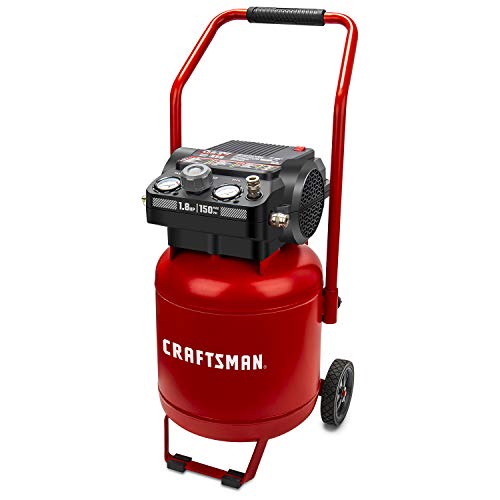
The decibel scales differ by a factor of two, so that the related power and root-power levels change by the same value in linear systems, where power is proportional to the square of amplitude. The decibel may be defined by the statement that two amounts of power differ by 1 decibel when they are in the ratio of 100.1 and any two amounts of power differ by N decibels when they are in the ratio of 10N(0. Such large measurement ranges are conveniently expressed in logarithmic scale: the base-10 logarithm of 1012 is 12, which is expressed as a sound pressure level of 120 dB re 20 μPa. Since the human ear is not equally sensitive to all sound frequencies, the acoustic power spectrum is modified by frequency weighting to get the weighted acoustic power before converting to a sound level or noise level in decibels.
how to maintenance air compressor Related Question:
Which oil is best for air compressor?
The Clear Choice for Lubricated Compressors In general, manufacturers today recommend using either a 20 or 30 weight synthetic lubricant — rather than a mineral oil — to get the best results out of your industrial compressed air system.
How often should you service an air compressor?
If you’re running your compressor occasionally, then annual service would be adequate. If you are running continuously, then quarterly service may be needed to ensure you are staying ahead of avoidable issues.
Do you have to oil air compressor?
Share via. Air compressors require constant oil lubrication to prevent friction on the pistons or screws and other moving parts. To make sure your air compressor is running efficiently, it is important to check your oil level regularly and to know how much oil your compressor needs.
Why do air compressors use non detergent oil?
It offers better protection of internal pump parts by reducing wear and friction. Synthetic blend oil extends the air compressor pump life, especially during cold weather use.
Can motor oil be used in compressor?
It is possible to use a standard weight motor oil in your compressor. While this isn’t the top recommendation, it could get you by. Generally, it is not recommended to run a multi-viscosity oil in a compressor since it might cause foaming issues. Sticking with a 20W or 30W oil is your best choice.
What happens if you put too much oil in air compressor?
While the dangers of too little oil are obvious, it’s also important not to overfill a compressor with oil. If the oil level is too high the oil can get whipped and it will foam up, losing some of its lubricating properties. In addition, it will gain volume, further increasing your problems.
How much oil does my air compressor need?
The air compressor system holds approximately 1 gallon (4L) of oil. Check the oil level at the sight glass on the front of the WHASP Tank. Continue adding oil until the level is correct. Reinstall the fill cap.
What will happen if the oil level is too low or dry in a piston compressor?
In most compressors, the oil level in the sight glass should be between ¼ and ½ sight glass. Too little oil in the compressor results in an obvious oil trip. Too much oil in the compressor can also cause oil trips. Excessive oil can cause enough turbulence in the crankcase to result in low net oil pressure.
What is reciprocating air compressor?
Reciprocating Air Compressor is a type of positive displacement type of air compressor in which air is sucked into a chamber and compressed with the help of a reciprocating piston. The basic working principle of a reciprocating compressor is similar to that of a crankshaft piston.
What’s better oil-free or oil compressor?
While oil-free air compressors are cheaper, lighter and require less maintenance, oil air compressors are more durable. As the oil-free compressors are pre-lubricated, there is no constant maintenance and the unit tends to get dry when the Teflon starts wearing out. They don’t last as long as oil air compressors.
Do air compressors have oil filters?
Oil filters are normally only found on bigger compressors, like oil-injected screw compressors. Obviously, they filter the oil to remove any dirt. In other words: they protect your compressor from damages by dirt, sand, pieces of rust, etc.
How long do oil-free compressors last?
While the purchase price and ongoing maintenance is much less, oil-free compressors typically have a product life of around 200 hours, with higher-end units lasting up to 2,000 hours.
Is SAE 30 non detergent oil?
SAE 30 is typically a non detergent motor oil used in small engines. Detergent oils contain special additives designed to trap and suspend dirt and dissolve engine oil sludge in the oil until it’s changed. A non detergent oil doesn’t have these additives.
Can I use 10W30 oil in my air compressor?
Can you use 10W30 in your air compressor? No. The recommendation by manufacturers of air compressors and the advice of air compressor experts is to use air compressor oils without detergents. Since 10W30 contains detergents, it should not be used.
Which oils are non detergent?
Modern day Non-Detergent Oils can go by many different names; Non-Detergent Engine Oils, Rust and Oxidation Oils, Mineral Oils, Turbine Oils, Multipurpose Oils just to name a few. Put simply, these lubricating oils contain minimal to no metallic additives (Detergents).

